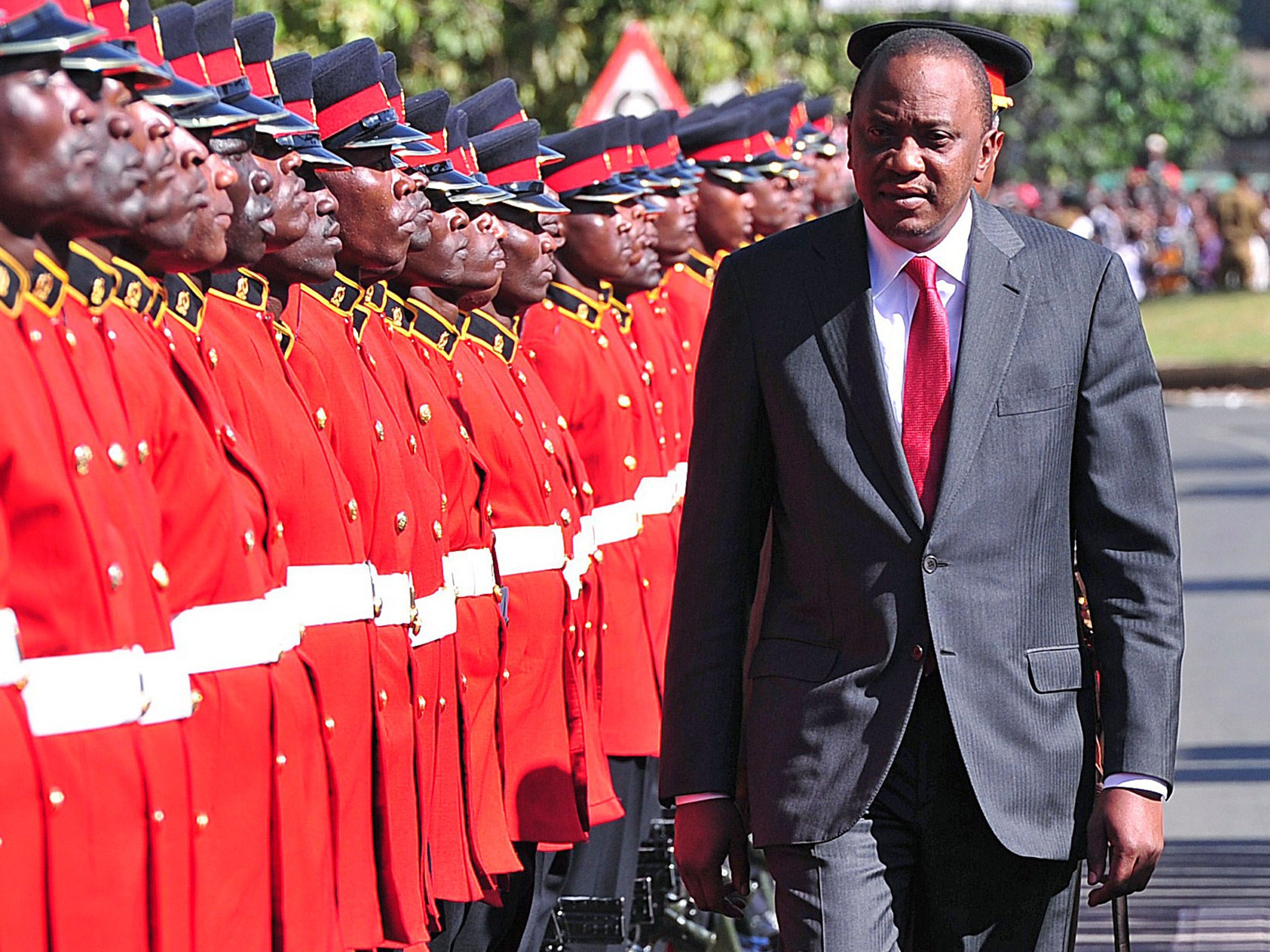Kenyan President Uhuru Kenyatta 'funded and orchestrated' violence of feared Mungiki militia after 2007 election
ICC's chief prosecutor lays out damning summary of pre-trial charges of high-profile case that collapsed last month amid accusations of bribery and intimidation

President Uhuru Kenyatta funded, armed and mobilised the feared Mungiki militia responsible for violence in the aftermath of Kenya’s 2007 elections, which left more than 1,000 people dead, the chief prosecutor of the International Criminal Court (ICC) has said.
In a damning summary of the pre-trial charges against Mr Kenyatta, Fatou Bensouda laid out the case against him, which she was forced to drop last month because of a lack of evidence. She has accused the defence of bribing and intimidating key witnesses to recant their testimonies.
The collapse of the high-profile proceedings has undermined the credibility of the court, established in 2002 to hold the powerful to account, but which has just seven suspects in custody. In her statement last month, Ms Bensouda accused the Kenyan government of failing to comply with requests for key documentary evidence.
Nevertheless, the dossier will prove embarrassing for Mr Kenyatta, who has denied inciting violence. Kenya witnessed some of its worst ethnic bloodshed when opposition supporters challenged December 2007 election results that brought Mwai Kibaki a second presidential term. Armed gangs committed atrocities against opposing tribes, and tens of thousands of Kenyans were displaced.
Mr Kenyatta, accused of orchestrating the violence in the Rift Valley, was indicted in 2011, but went on to win the presidency in 2013, saying in his pre-election speeches that the ICC was a personal issue that would not detract from his ability to govern. It rapidly became a political issue, with the ICC’s detractors dubbing it the “colonial court” for bringing Africans to trial.
Ms Bensouda alleges that Mr Kenyatta and his associates struck a deal with the Mungiki, a Kikuyu militia, to ensure the ruling Kikuyu tribe held on to power in the event of violent clashes.
Based on witness testimony, she alleges that the politician pledged money, arms and support to the militia, who were allegedly told by Mr Kenyatta’s lieutenants to do their “worst” to terrorise supporters of the ODM, the opposition party, according to the summary
In Naivasha and Nakuru in late January 2008, the Mungiki and supporters maimed, beheaded and bludgeoned their victims to death, burned homes with people inside, carried out mass rapes, and forcibly circumcised men from the rival Luo tribe.
Ms Bensouda claimed that there was a subsequent alleged cover-up aimed to conceal Mr Kenyatta’s role.
Ms Bensouda was ordered by the court’s judges to release the pre-trial evidence following a request from Fergal Gaynor, the lawyer representing the victims in the violence. The trial against William Ruto, the Deputy President, continues.
Mr Steven Kay QC, Lead Counsel for Mr Kenyatta, has described the Pre-Trial Brief as “reflecting the allegations of a failed case no longer supported by evidence”.
Mr Kay pointed out that the Prosecution’s court filing of the Pre-Trial Brief acknowledged this, stating it “contains allegations that are no longer sustainable”. He said "the allegations against Mr Kenyatta had relied almost exclusively on the evidence of witnesses who were withdrawn from the case, two of whom had tried to exhort money from the Defence and from Mr Kenyatta’s associates. ”
Join our commenting forum
Join thought-provoking conversations, follow other Independent readers and see their replies
0Comments